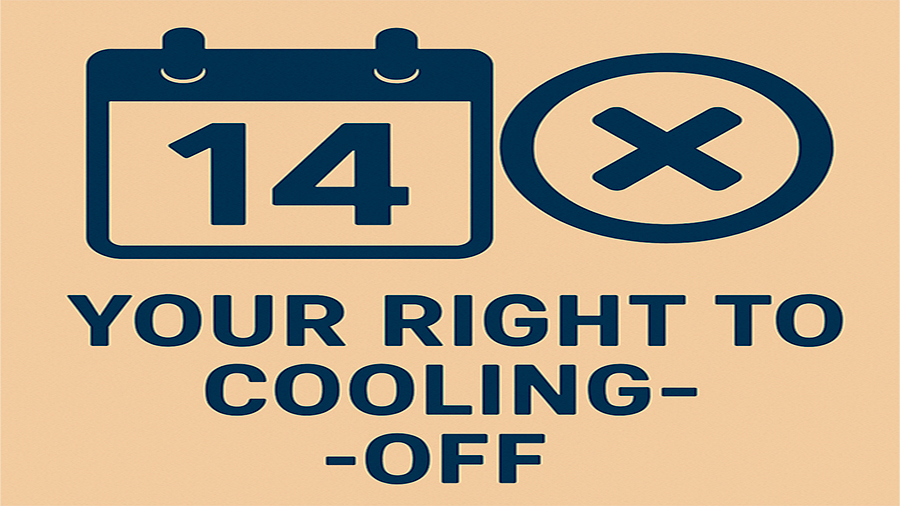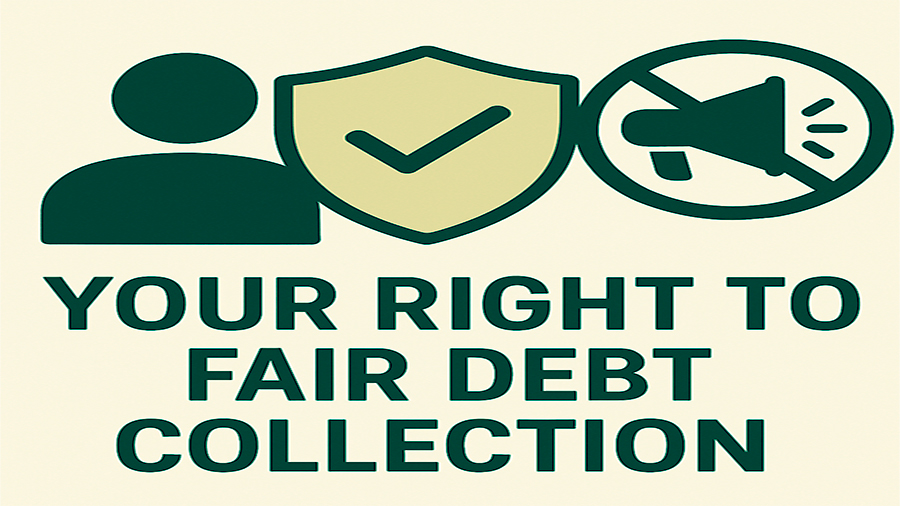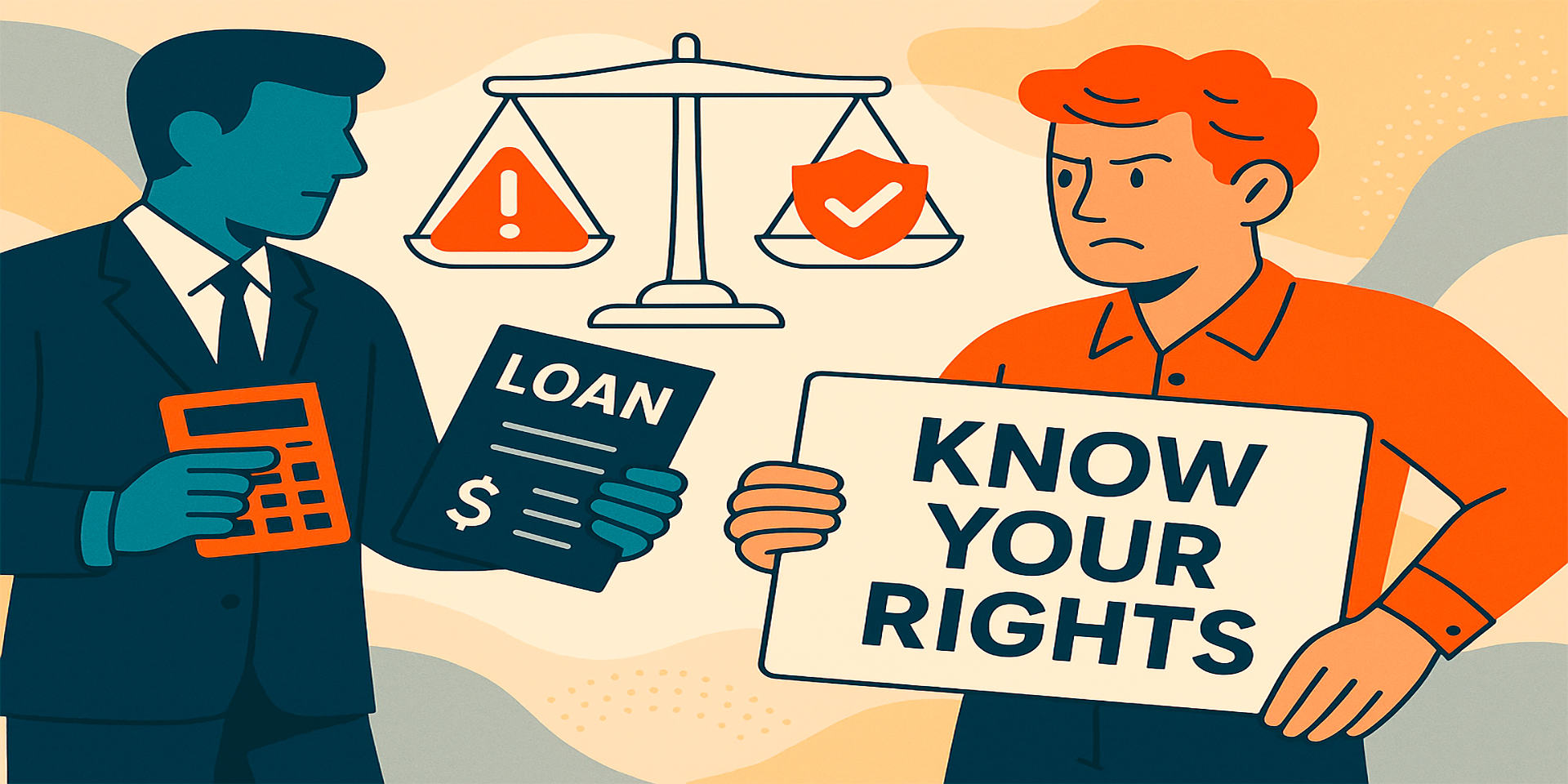When you’re taking out a loan, it’s easy to focus on the numbers—how much you’re borrowing, what the monthly payments look like, or how long the repayment period will last. But there’s another part of the deal that matters just as much: your rights. As a borrower, you’re not just someone who owes money—you’re protected by law, entitled to clear information, and have the right to fair treatment. If you don’t know your rights, it’s easy to be caught off guard by fees, confusing terms, or lenders who bend the rules.
Let’s walk through what you need to know before, during, and after getting a loan.
Clear and Transparent Loan Terms
One of the most fundamental rights you have is the right to know exactly what you’re agreeing to. Every loan offer must include clear, complete, and honest information about the interest rate, repayment schedule, total cost, and any fees. That includes both the nominal interest rate and the APR—the annual percentage rate that reflects the total cost of borrowing, including charges. If any of that is missing, vague, or hidden in fine print, that’s a red flag.
Look for These Key Disclosures
- Loan amount: The exact sum being borrowed.
- Repayment terms: Monthly payment, duration, and total repayment amount.
- Interest rate and APR: Understand both. APR includes fees, not just the base rate.
- Fees: Origination fees, late payment penalties, early repayment costs.
If a lender isn’t clear about these things—or tries to rush you through the process—that’s a reason to walk away. You always have the right to read every document carefully and ask questions.
Your Right to Fair Lending
Discrimination in lending is illegal. That means lenders can’t deny you a loan—or charge you higher rates—based on personal characteristics like race, gender, religion, marital status, nationality, or age. Lending decisions must be based on objective factors like income, credit history, and debt-to-income ratio.
What to Watch For
If you feel like you’re being treated unfairly, you can ask for an explanation. In many countries, you’re entitled to a written statement if you’re denied credit. This should explain why your application was rejected or why the conditions were different than expected. It’s not just about being accepted—it’s about being treated fairly throughout the process.
You also have the right to compare offers. Never let a lender pressure you into accepting a deal on the spot. You’re allowed—and encouraged—to shop around. That’s how you find the best terms for your situation.

Your Right to Cancel Within a Cooling-Off Period
In many jurisdictions, especially in the EU, borrowers have a short window to change their mind after signing a loan agreement—usually 14 days. This is called the cooling-off period. During this time, you can cancel the contract without penalty and without giving a reason.
How It Works
If you choose to cancel within this period, you’ll have to return any money you’ve already received, plus any interest that’s accrued up to that point. But there are no additional charges, and the lender can’t penalize you for backing out. This is designed to protect you from rushed decisions or high-pressure sales tactics.
Not every borrower knows about this right—but it gives you a safety net if you have second thoughts after signing.
Your Right to Repay Early—Sometimes Without Fees
You might think that repaying a loan early would always be a good thing—and often, it is. But some lenders charge early repayment fees, especially on fixed-rate loans where they miss out on expected interest. The good news is, in many countries, you have the right to repay early, fully or partially, and fees must be fair and clearly disclosed upfront.
Know Before You Commit
- Check your contract: Does it allow early repayment?
- Are there penalties? Some lenders charge 1–2% of the remaining balance.
- Will you save on interest? Make sure early repayment reduces your cost, not just your timeline.
Some lenders are flexible and even encourage early repayment. Others make it harder than it should be. Knowing your right to prepay can save you hundreds—or even thousands—over time.
Your Right to Access and Correct Your Credit Information
Before approving your loan, most lenders will check your credit history. And you have the right to know what’s in that report, especially if your application is denied because of it. Credit reporting agencies must provide a copy of your report upon request, often for free at least once a year.
If Something’s Wrong, You Can Fix It
Errors in your credit report—like payments marked as late when they weren’t, or loans you never took—can hurt your score and cost you better loan terms. If you spot a mistake, you have the right to dispute it and have it corrected. Agencies are legally required to investigate and respond, usually within 30 days.
Your credit file is one of your most important financial assets. Don’t let it go unchecked.
Your Right to Be Informed During the Life of the Loan
Even after you’ve signed the agreement, your rights don’t stop. You’re entitled to ongoing updates about your loan—like changes in interest rates (for variable-rate loans), updated balances, and reminders about missed or upcoming payments. These updates should be timely and clear, not buried in hard-to-read statements.
Stay in the Loop
- You should receive statements on a regular basis—usually monthly.
- Any changes to the contract must be communicated before they take effect.
- If you fall behind, you must be notified before any legal or collection actions begin.
Communication is part of responsible lending. If your lender is unresponsive or unclear, that’s a red flag—and a reason to escalate or report their behavior.

Your Right to Fair Debt Collection
If things go wrong and you miss payments, lenders or third-party collectors still have to treat you fairly. Harassment, threats, and misleading information are all prohibited. Debt collection must follow clear rules—rules designed to respect your rights even in tough situations.
Here’s What Collectors Can’t Do
- They can’t call you at unreasonable hours.
- They can’t threaten legal action they don’t intend to take.
- They can’t contact your employer, family, or neighbors to pressure you.
If you feel threatened or mistreated, report the agency to your country’s financial regulator. You still owe the debt—but you don’t owe your dignity.
Taking a loan isn’t just about getting approved—it’s about being treated fairly from start to finish. Knowing your rights helps you stay in control, avoid costly mistakes, and deal with lenders confidently. From transparent terms and fair treatment to the right to cancel, repay early, and dispute credit errors, the law is on your side. The more you know before signing, the better you’ll handle what comes next—and the safer your financial journey will be.


